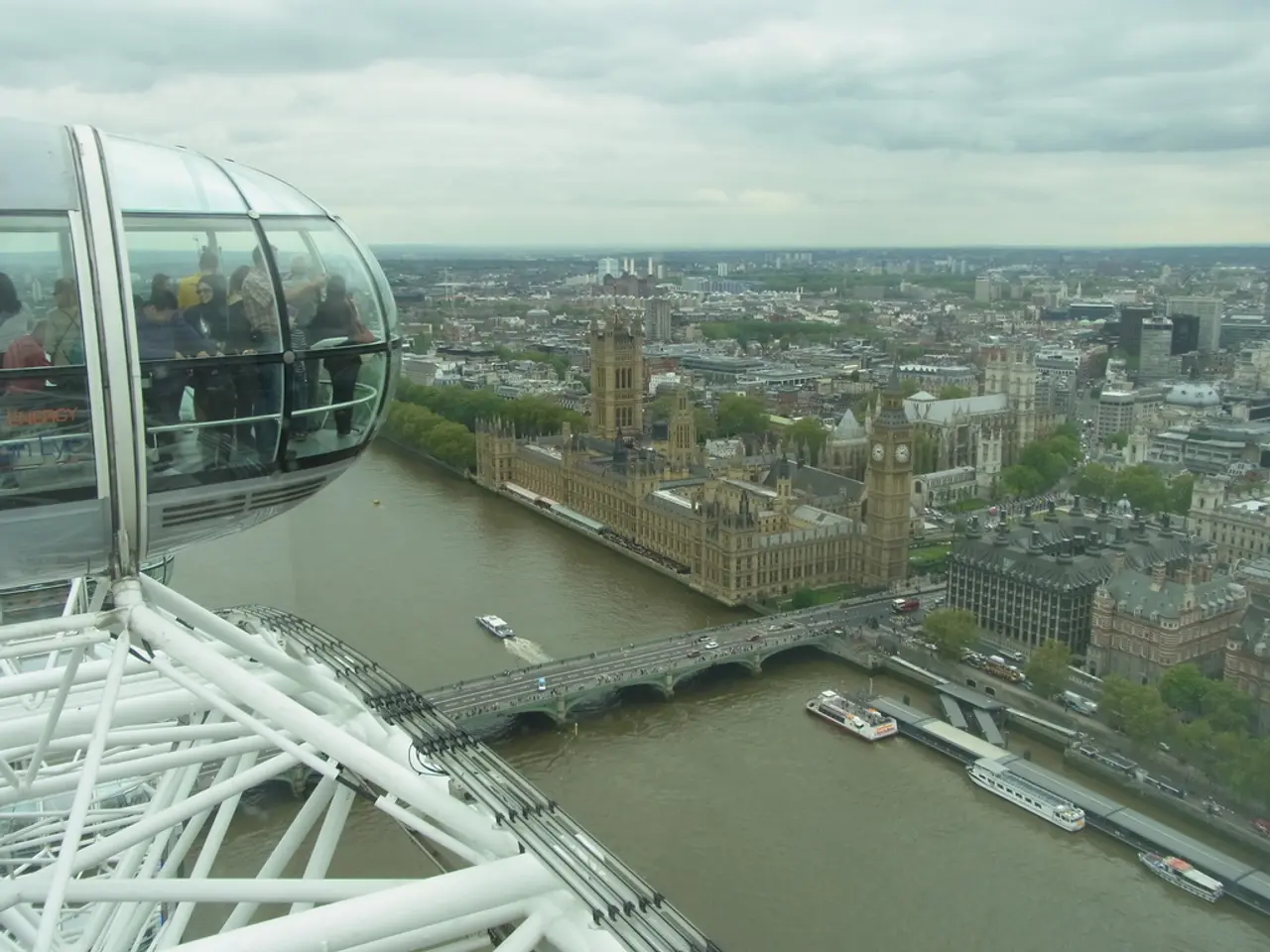Skyrocketing home values in the UK: Over the past pandemic period, properties valued at one million pounds have seen a staggering rise of around 50% in worth.
**UK House Prices: A Changing Landscape**
The UK housing market continues to evolve, with recent data revealing a slowdown in growth compared to previous years. According to figures from Zoopla, over a million homes across the nation have seen their values increase by 50% or more over the past five years, while one million houses have experienced a rise of over 50% since 2020 alone.
These changes have sparked interest in previously overlooked areas offering good value for money, as buyers seek more spacious homes and locations outside city centres, driven by remote work trends. However, these shifts could drive up prices even further, presenting potential challenges for first-time buyers, such as increased costs, affordability concerns, and increased competition.
The pandemic has had a significant impact on the market, with house price growth weaker across southern England and particularly in London. In contrast, the North West has seen the strongest house price growth, benefiting from rising employment. Despite these challenges, the UK housing market has shown resilience, with prices continuing to rise, albeit at a slower pace.
The decrease in bank rates has led to optimism regarding lower mortgage rates, which could further boost market activity and prices. However, the ongoing impact of inflation and mortgage rates will continue to influence the market, with potential fluctuations based on economic conditions.
In Q1 2025, house prices increased by 0.87% quarter-over-quarter, according to Nationwide's data, and there are predictions of a potential increase in house prices by as much as 3.5% in 2025. The forecast for average house price growth between 2024 and 2028 is approximately 2.7%, indicating a moderation in growth.
The property platform Zoopla attributes house price growth to pandemic and lifestyle-led changes, reporting substantial rental growth in Northern and Welsh cities, encouraging first-time buyers to buy properties instead of renting. Meanwhile, flat prices and modest price falls have been observed in inner London due to high prices and higher mortgage rates.
In a positive outlook, the CEO of Propertymark, Nathan Emerson, considers the rise in house prices a positive sign, despite the current economic condition. However, the number of homes priced at £1m or above has doubled since the start of the pandemic, as reported by Rightmove, highlighting the growing affordability gap in the market.
In conclusion, while the UK housing market faces challenges, it is adapting to post-pandemic changes with a focus on evolving buyer needs and economic conditions. The market remains dynamic, with regional variations and ongoing fluctuations in house prices.
- The growth in UK house prices is being influenced by the changing lifestyle trends, with buyers seeking more spacious homes outside city centers due to the rise of remote work.
- The current economic conditions, such as inflation and mortgage rates, will continue to impact the UK housing market and determine future fluctuations in house prices.
- The recent evolution in the UK housing market has resulted in an increase in housing values across the nation, with over a million homes seeing a 50% increase in value over the past five years.
- Investing in real estate, particularly in areas outside city centers, could be an attractive option for those interested in personal finance, as these areas are offering good value for money amidst the shifting housing market landscape.




